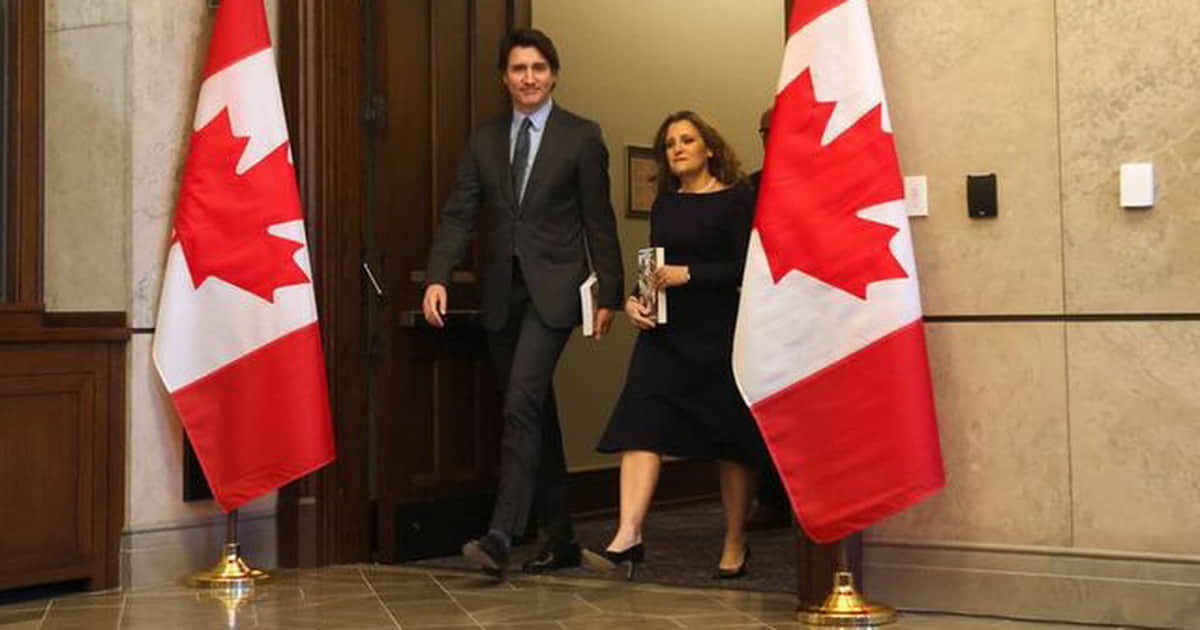Why a change of power in Canada could happen soon and what it means for Ukraine

The Canadian government may face early resignation, and its leader, Justin Trudeau, could lose his chances of remaining prime minister. The political crisis erupted all of a sudden with the resignation of Chrystia Freeland, a Canadian politician of Ukrainian descent, from her positions as deputy prime minister and finance minister. Freeland cited disagreements with Trudeau over economic policy ahead of Donald Trump's announced introduction of trade tariffs on Canada as the reason for her departure.
Read more about the implications of this development, including its impact on Ukraine, in the article by Dmytro Sherengovsky, Program Director of the Dnistrianskyi Centre - Trudeau, it's time to say goodbye! How Chrystia Freeland's resignation signals big changes in Canada. The official reason for Freeland's resignation, and likely the final straw, was her divergence from Trudeau on Canada's response to Trump's pledge to impose 25% tariffs on all imports from Canada and Mexico unless these countries address illegal migration and drug trafficking (particularly fentanyl) to the United States.
Advertisement: These accusations are not entirely groundless, as both Canada and Mexico have more liberal immigration policies and less restrictive entry conditions compared to the US, which migrants often exploit. Additionally, some Canadian and Mexican exports are exempt from tariffs under the USMCA (United States-Mexico-Canada Agreement), a compromise deal crafted during Trump's first term.
This announcement caught Canada off guard, as 75% of its exports are to the US. Freeland advocated for a tougher Canadian response, significant government spending cuts, and preparation for economic tightening during Trump's presidency. Meanwhile, in late November, Trudeau decided to waive taxes on certain goods and services (toys, food, decor, entertainment, etc.) in several provinces for the Christmas season, extending through February 2025.
This clear populist move aimed to counteract the government's declining ratings and bolster the Liberal Party's support. Tensions between Trudeau and Freeland had been building for years, becoming apparent as early as the 2018 NAFTA renegotiations. By 2024, the rift had reached a breaking point.
Freeland pushed for deeper spending cuts, while Trudeau focused on expanding social programmes and promoting the green transition. Conspiracy theories circulated that Trump had demanded Freeland's removal as a condition for negotiating with Trudeau, citing her tough stance during NAFTA talks and her strong pro-Ukraine position, which could hinder Canada's alignment with Trump's vision for a rapid peace deal on terms unfavorable to Ukraine. Although this theory is speculative, its context contains some elements of truth.
Trump had frequently used criticism of Freeland as a political tool during NAFTA negotiations, reportedly referring to her as an unwelcome negotiator, according to Politico. Freeland's resignation exposed divisions within the Liberal Party that had previously been kept out of public view. To address internal party issues, Trudeau employed his usual tactic of reshuffling the cabinet.
These changes "awakened" Canada's opposition. NDP leader Jagmeet Singh announced that "the Liberals don't deserve another chance" and pledged to call for a vote of no confidence at the next parliamentary session starting on 27 January. If the opposition unites (and it seems likely they will), they could secure enough votes to pass the motion of no confidence.
Interestingly, this political crisis in Canada poses no risks for Kyiv and could even bring additional benefits.
If you notice an error, select the required text and press Ctrl + Enter to report it to the editors.